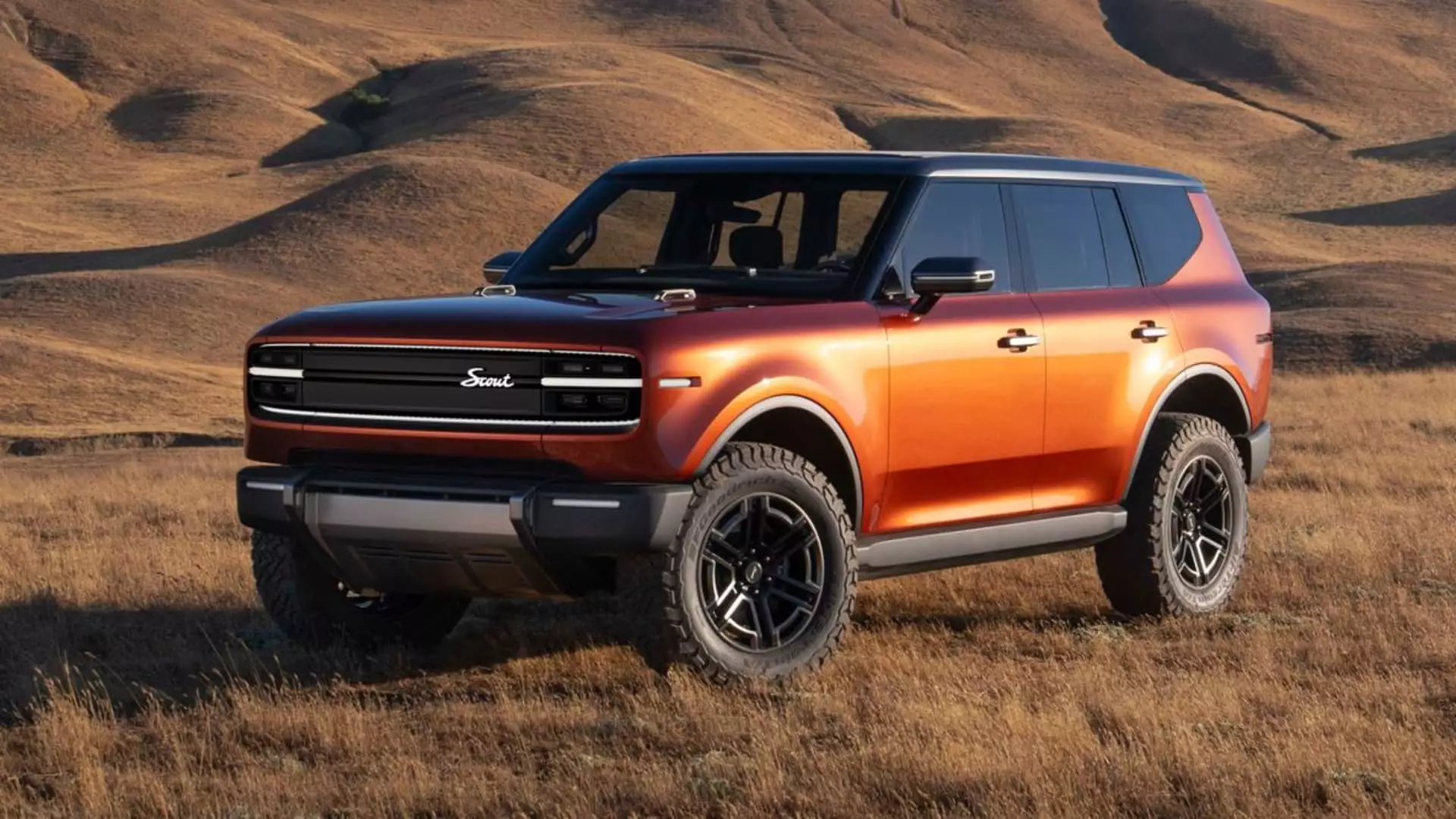In an unexpected yet strategic pivot, Scout Motors, a name from the automotive past, is stepping boldly into the future by unveiling its initial electric vehicle (EV) lineup. Once a proud player in the American automotive scene from 1961 until 1980, Scout has been resurrected by Volkswagen in a bid to penetrate the growing U.S. EV market. This week’s reveal not only included all-electric models but also introduced a new type of plug-in hybrid known as Extended-Range Electric Vehicles (EREVs), marking a significant evolution in the brand’s strategy amidst shifting consumer preferences and economic considerations.
Adapting to Market Realities
Reality struck hard as the initial expectations of rapid EV adoption have fallen short. Consumer hesitations, in conjunction with escalating costs of vehicle production, necessitated a re-evaluation of Scout’s offerings. CEO Scott Keogh, a seasoned veteran of the automotive industry with deep ties to Volkswagen, articulated this adaptive strategy, declaring, “Being a startup that moves quickly, we can pivot.” The decision to encompass EREVs alongside pure electric models evidences a dynamic approach to manufacturing that aims to cushion the brand against market fluctuations while still promoting electrification.
The EREVs incorporate both EV technology and a traditional internal combustion engine. This hybrid setup allows the engine to act as a backup generator when battery power is depleted, fostering consumer confidence in the viability of electric vehicles. Keogh’s rationale is clear: the EREVs serve as an attractive introduction to electrification, easing potential customers into the technology while providing them with a reliable fallback—effectively mitigating the fear and uncertainty surrounding pure EV ownership.
Scout Motors is targeting significant segments of the U.S. vehicle market, primarily through its initial offerings—a full-size pickup truck and a large SUV. By catering to around 40% of the market that commands high profitability, the company positions itself to tap into a lucrative customer base eager for innovative, electric alternatives to traditional gasoline vehicles. Despite the inherent challenges that new market entrants face—including fierce competition from established names like Ford and General Motors—Scout has a plan in place.
What sets Scout apart is its commitment to direct sales, bypassing traditional dealership networks to connect directly with consumers. In a marketplace where conventional dealership tactics often create friction, this model represents a progressive step towards a more streamlined and customer-centric purchasing experience. With reservations now open for the Traveler SUV and Terra pickup truck, the groundwork for a novel approach to vehicle sales is being laid.
Fully electric Scout vehicles promise impressive performance, with claims of being able to tackle 100% grade inclines while accelerating from 0-60 mph in a mere 3.5 seconds. The emphasis on engineering prowess also extends to the impressive torque figures, which hit nearly 1,000 lb.-ft., screaming capability and performance from these electric machines. By utilizing cutting-edge technology like an 800-volt architecture with bi-directional charging features, Scout reinforces its image as a manufacturer of sophisticated EVs, capable of meeting the demands of today’s tech-savvy consumers.
The decision to employ batteries sourced from a joint venture with Volkswagen earmarks Scout for operational synergy and cost efficiencies. These cost controls will be essential as the company navigates the challenging landscape of electric vehicle production, where battery costs often dictate overall pricing strategies.
While the immediate goal is clear—establishing a foothold in the U.S. automotive market—the long-term vision is even more ambitious. Scout aims to expand its product offerings and perhaps explore scaling down to smaller vehicles in the future. Keogh’s assertion that they are prepared to respond to market demands indicates a nimble approach that can dynamically adapt based on consumer feedback and industry trends.
The electric SUV and truck segment is undeniably burgeoning, yet the adoption rates still face uncertainty. Currently, this product category accounts for less than 1% of total new vehicle sales in the U.S., even though there has been a notable quarterly increase. Scout’s entry into this space, however, is not just about numbers; it’s about creating a brand that resonates with consumers and offers tangible alternatives to traditional vehicles.
A Road Ahead Full of Possibilities
Overall, Scout Motors’ revitalization and venture into the electric vehicle market fortifies the ongoing evolution of transportation. As they strive to strike a balance between innovative technology, appealing designs, and market needs, the success of their approach will hinge on their ability to remain responsive to an ever-changing automotive landscape. With continued advancements and a commitment to electrification, Scout could very well emerge as a formidable contender in an increasingly competitive field. For an industry pivoting towards sustainability, Scout’s journey is just beginning, and it is one that holds great potential for disruption and growth.

